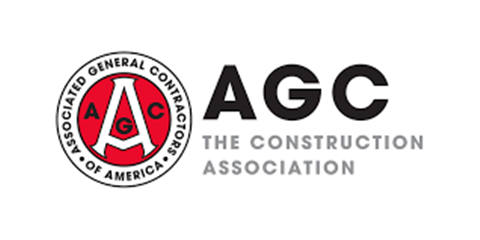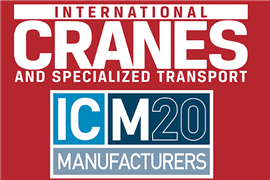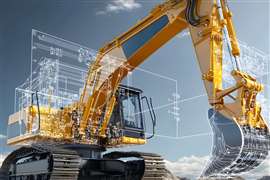New federal guidance suggests US construction could continue
30 March 2020
US construction officials say new federal guidance should signal to state and local officials the need to allow construction activity to continue, or resume, during the Coronavirus pandemic.

The Associated General Contractors of America (AGC) has been urging the Department of Homeland Security (DHS) to declare construction an essential industry. New Guidance version 2.0 appears to clarify construction’s critical role in supporting essential infrastructure.
“Federal officials have, wisely, heeded our advice and opted to release new guidance that makes it clear that construction activities are included in its list of essential critical infrastructure workers,” Stephen E. Sandherr, chief executive officer of AGC, said in a statement.
“This new federal guidance should help eliminate the confusion and ambiguity that has led several state and local officials to needlessly order halts to construction activity that is clearly essential.
“Specifically, federal officials have opted to identify construction and related activities, including the manufacture and delivery of construction supplies and safety equipment and the permitting and inspection of projects, in 25 different parts of its guidelines, compared to four times in its prior iteration.
“That is because federal officials understand the essential role construction plays in supporting our critical infrastructure and economic activities. They also understand that construction activity can continue to occur in a way that protects workers and the general public from the spread of coronavirus.”
He added, “Moving forward, we are eager to work with state and local officials to help them better understand how to heed this new federal guidance so they can continue, or begin, to allow construction work to proceed in their jurisdictions.”
Meanwhile, 39% of contractors report that project owners have halted or canceled current construction projects amid deteriorating economic conditions, according to a survey released by the AGC on March 27. Association officials warned these cancellations mean massive job losses are likely soon unless Congress passes targeted recovery measures to boost infrastructure funding, compensate firms for lost or delayed federally funded work and provide needed pension relief.
The project cancellations are particularly severe in light of new data showing that 42 states added construction jobs through February.
“The abrupt plunge in economic activity is taking a swift and severe toll on construction,” said Ken Simonson, the association’s chief economist, noting that only 18 percent of respondents have been ordered to halt work by elected officials. “The sudden drop in demand stands in sharp contrast to the strong employment levels this industry was experiencing just a few weeks ago.”
In the association’s latest online survey, conducted between March 23 and 26, 45% of the 1,640 respondents reported experiencing project delays or disruptions. Shortages of material, parts and equipment, including vital personal protective equipment for workers such as respirators, were reported by 23% of respondents, while 18% reported shortages of craftworkers and 16% said projects were delayed by shortages of government workers needed for inspections, permits and other actions. A total of 13% said delay or disruption had occurred because a potentially infected person had visited a jobsite.
Association officials warned that while the coronavirus relief package approved by Congress last week will provide some immediate help for construction workers and their employers, lawmakers must do more to protect high-paying construction jobs.
“The steps firms are taking to protect workers from the coronavirus unfortunately won’t be enough to save many of them from the economic damage the pandemic is creating,” said Sandherr. “Construction workers and employers need more than a lifeline, they need a recovery plan.”
View the state employment data, rankings, and map. View AGC’s coronavirus resources and survey.
STAY CONNECTED


Receive the information you need when you need it through our world-leading magazines, newsletters and daily briefings.
CONNECT WITH THE TEAM











